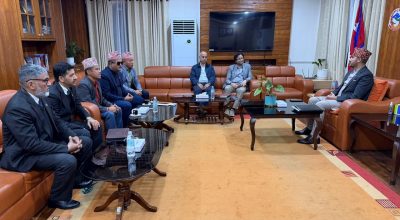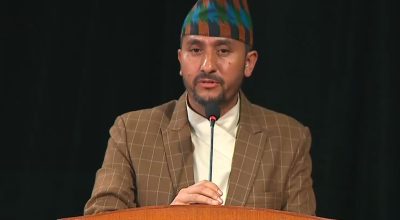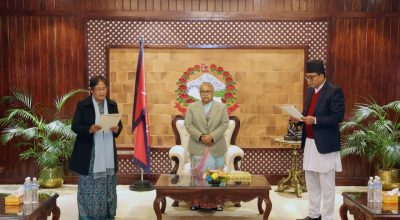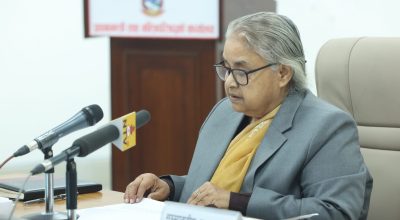
Kathmandu, Nov 29: The Nepal Rastra Bank, the central bank, has kept policy rate, deposit collection rate and bank rate as it was through the first quarterly review of the monetary policy for the fiscal year 2081/82 BS.
The central bank has kept the existing policy arrangements unchanged when monetary indicators remained positive.
“The existing policy rate of the monetary policy has been kept unchanged at 5 per cent, the deposit collection rate as the lower limit under the interest rate corridor at 3 per cent and the bank rate as the upper limit under the interest rate corridor at 6.5 per cent”, the NRB said in a review of the monetary policy.
Similarly, the mandatory cash reserve ratio and statutory liquidity ratio have been maintained at existing level.
It is expected that the continuation of the monetary policy will help achieve economic growth target set by the government by further supporting the expansion of economic activities and maintaining price stability and external sector stability.
In the monetary policy of the current fiscal year, the average consumer inflation for the first three months was 4.26 percent.
The central bank said the price of food and beverages group increased by 7.18 percent and the non-food and service group by 3.49 percent in the month of Ashwin (mid-September to mid-October), while the annual point consumer inflation was 4.82 percent. The monetary policy aims to maintain foreign exchange reserves sufficient to sustain the import of goods and services for at least seven months, while the foreign exchange reserves are sufficient to sustain the import of goods and services for 14 and a half months in Ashwin.
In the first three months of the current fiscal year, the weighted average interbank rate of banks and financial institutions is 3 percent. Similarly, on a year-on-year basis, credit to the private sector increased by 13.3 percent and private sector credit by 6.2 percent in the month of Ashwin on a year-on-year basis, compared to 12 percent in the broad money supply and 12.5 percent in the private sector from the monetary sector. RSS #Nepal
















